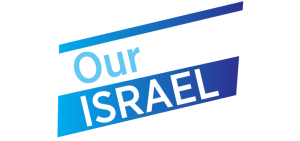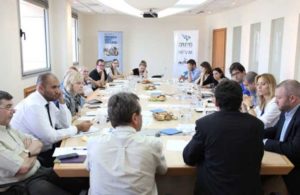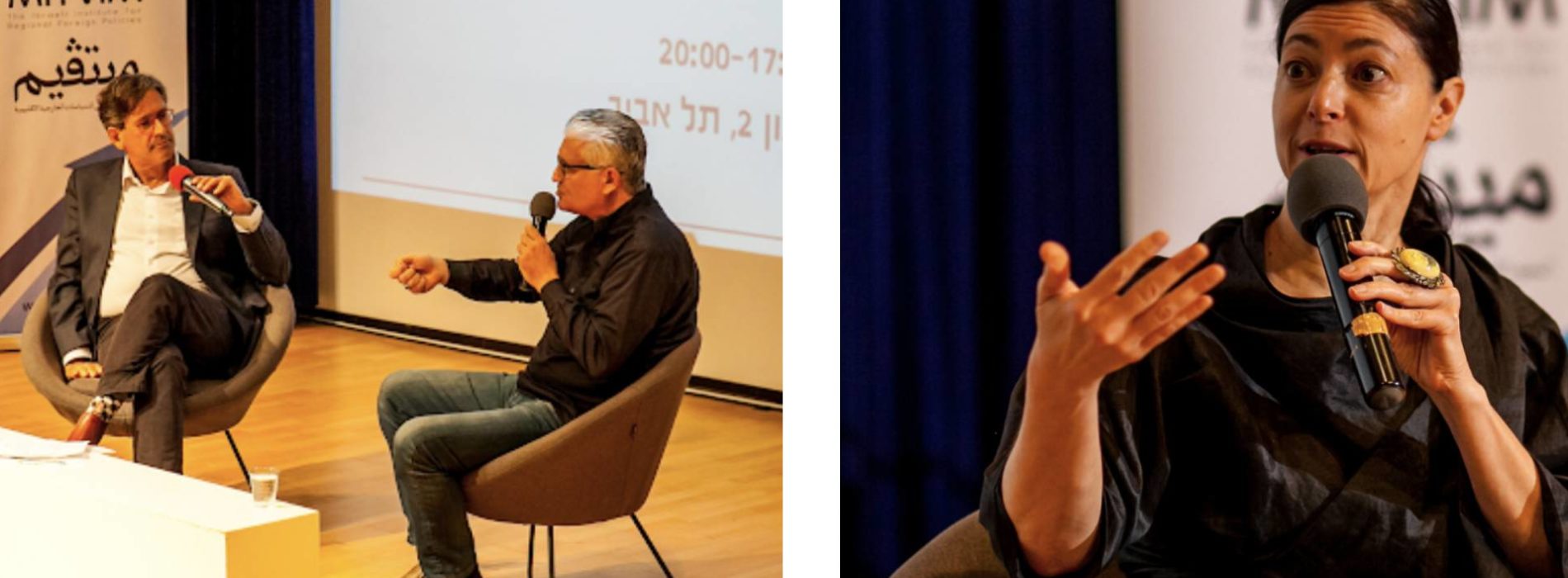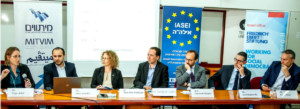- About Us
- Policy Center
- Learn
- Press Room
- Blog
- Get Involved
- Donate
- Donate to J Street Online
- Make a Gift in Someone’s Honor or Memory
- Make a Monthly Gift
- Tax-Deductible Donations
- Giving by mail

J Street’s “Our Israel” project spotlights the amazing Israeli groups who share our progressive vision for Israel, and who are helping build a society underpinned by the founding values of democracy, self-determination and equality which are enshrined in Israel’s Declaration of Independence.

Mitvim: More Than a Think Tank
For many years, grassroots organizations and activists have worked to try to mitigate and peacefully resolve the Israeli-Palestinian conflict– focusing on preserving human rights, strengthening coexistence, opposing occupation and promoting peaceful solutions. Yet few in the world of think tanks and policy shops were focused on that agenda. That’s where Mitvim came in.
“Over ten years ago, the way our founder saw it was that the Israeli think tank space was heavily headed by senior military officials who were focused on defense,” Director of External Relations and Development Victoria Solkovits explains. “They were much less focused on issues like promoting peace through diplomacy. Mitvim was founded to fill that gap.”
Mitvim takes a unique approach to foreign policy for an Israeli organization. They work to prove that positive outcomes for the State of Israel can be achieved through diplomacy, statecraft and cooperation –- and that this approach can improve Israel’s regional belonging across the Middle East, the Mediterranean, Europe, and with the Palestinians.

Advancing Israel’s Security through Peace
Mitvim’s mission is to create a paradigm shift in Israel’s handling of foreign policy and its relationships within the wider region in order to help advance Israeli-Palestinian peace.
“The Israeli-Palestinian conflict is embedded in every single thing that we do,” Solkovits tells J Street. “We hold the tenet that advancing Israeli-Palestinian peace is a key need for Israel’s national security, and see these two ideas as inherently connected. It is a central part of our mission that we don’t try to shy away from.”
Mitvim primarily advances its goals by engaging with the Israeli government. Their community of experts combines foreign policy practitioners- former diplomats, mediators and government officials- with some of Israel’s leading academics. This allows them to develop creative and practical policy recommendations, which are then taken directly to elected officials and policymakers.
In these efforts, Mitvim does not only speak with those they know already agree with them. They meet with members of parties across the political spectrum, from the far left to the center-right.
They’ve seen significant success. “After reading our research on energy and peace, a high level government official requested a briefing on the findings with Mitvim and our researchers,” Solkovits notes.
Mitvim used the meeting to advocate for bottom-up peacebuilding initiatives and provided concrete opportunities and recommendations for the government to support them. They continue to be in contact with various officials throughout the government regarding current trends and recommendations relating to the Israeli-Palestinian arena.

Reframing Normalization
In 2020, Israel signed a series of normalization agreements – often referred to as “The Abraham Accords” – with two of its neighbors in the Middle East: Bahrain and the United Arab Emirates. In the following months Sudan and Morocco followed suit and signed their own normalization agreements with Israel.
The normalization agreements were hailed by many as a major success in improving Israel’s relationship with its neighbors and improving Israel’s standing and belonging within the region.
However, many also raised concerns about what these agreements would – or wouldn’t – do for the efforts to resolve the Israeli-Palestinian conflict and create an independent Palestinian state alongside Israel. Some advocates and commentators noted that the Accords did not incorporate any Palestinian views or appear to produce tangible improvements for Palestinians, and worried that they could be used to bypass, undermine or sideline diplomatic efforts focused on the Israeli-Palestinian conflict.
Mitvim knew that they had work to do to address this. “Our big priority for 2022 was to figure out how to reframe the normalization agreements to advance Israeli-Palestinian peace,’ Solkovits says.
In their annual public opinion survey, the Foreign Policy Index, Mitvim asked Israelis: “Do you support using the Abraham Accords to advance Israeli-Palestinian peace?” The results showed that over fifty-five percent of Israelis did. They took the numbers to the Minister of Regional Cooperation, who told them that he had wanted to do more work to connect the Abraham Accords to peace efforts – but he wasn’t aware there was such high public support for such an initiative.
They continue to push for the use of the agreements as a tool to build on, and to bring the Palestinians into the fold.
“In all of our dialogues with our Arab partners, and in all of our work, we are conscious and intentional about making sure that the Palestinian issue comes up. And in our policy briefings and recommendations, whenever we talk about deepening the Abraham Accords, we’re telling Israeli government officials that you can only do that if you’re bringing Israel-Palestine into the issue as well.”
Actively Bringing About Positive Change
“Concurrent to our work to impact the Israeli government, we also try to impact the public and policy discourse in Israel,” Solkovits says. “We like to say that we’re a ‘think’ and ‘do’ tank.”
The organization publishes weekly in depth policy analysis on Haaretz and other publications, both in Israel and internationally. They have a task force of Israeli and Palestinian policy experts – one of the only joint Israeli-Palestinian policy forums that still meets regularly. They have created a strategic dialogue forum with organizations in Turkey, Greece and Cyprus. And they’ve established close relationships with other think tanks in the Middle East, including starting the first strategic dialogue between an Israeli and a Moroccan think tank.
Mitvim also serves as a trusted source of knowledge for the diplomatic community in Israel. Solkovits often holds briefings with embassies and ambassadors to inform them about what’s going on in Israel’s foreign affairs and provides them with the space to ask questions about their policy priorities.
As they continue to fill gaps and change how Israel approaches foreign policy, they know that tremendous work still lays ahead. “Our goal and our hope is that one day the parties will be sitting at the table again and talking. But we can’t do it alone. We need everyone to be doing this work.”
To learn more about Mitvim visit their website.